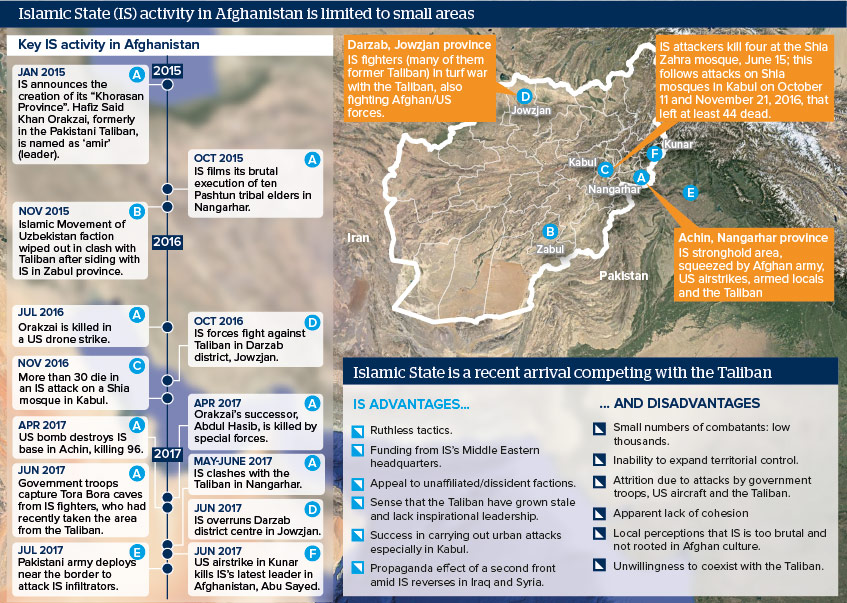Islamic State unlikely to expand in Afghanistan
The group has failed to win numerous recruits and is now fighting on all fronts
Source: Media reports, Oxford Analytica
Outlook
Islamic State’s ‘Khorasan’ or Afghan offshoot emerged in public in January 2015, and brought together disparate elements: Pakistani Taliban, dissident Afghan militants, some Uzbeks and others. It was soon targeted by Afghan government troops, US aircraft and parts of the Taliban which resented the encroachment. That has prevented it from expanding beyond a stronghold in Nangarhar province. US defence officials believe IS’s fighting capacity is severely degraded.
A similar, somewhat separate IS force has operated in northern Afghanistan since at least 2016, and it, too, is battling both the Afghan army and hostile Taliban. The links to IS in Syria are genuine although few combatants seem to have transferred from that conflict.
Impacts
- The Pakistani military is alarmed by the idea of IS militants crossing from Nangarhar and will act to prevent this.
- Any IS fighters, non-Afghans especially, fleeing Mosul and Raqqa will find Afghanistan a hostile environment.
- If IS funding falls, those fighters who only joined for the relatively good pay will drift away.
- IS has benefited from the lack of a general agreement on a Taliban leader, which may be reached this year.
See also
- Taliban help suffocate Islamic State's Afghan presence - Apr 17, 2020
- Islamic State courts like-minded Afghan jihadists - Jun 6, 2019
- Islamic State will face obstacles to Afghan relocation - Jan 17, 2018
- Afghan Islamic State beset by US and Taliban attacks - Nov 27, 2017
- Taliban fractures obstruct Afghan peace prospects - Nov 3, 2017
- Afghanistan-Pakistan hostility will increase - Sep 28, 2017
- US strategy on Afghanistan may achieve its modest aims - Aug 30, 2017
- Islamic State poses limited threat to Afghan security - Sep 7, 2016
- More graphic analysis
